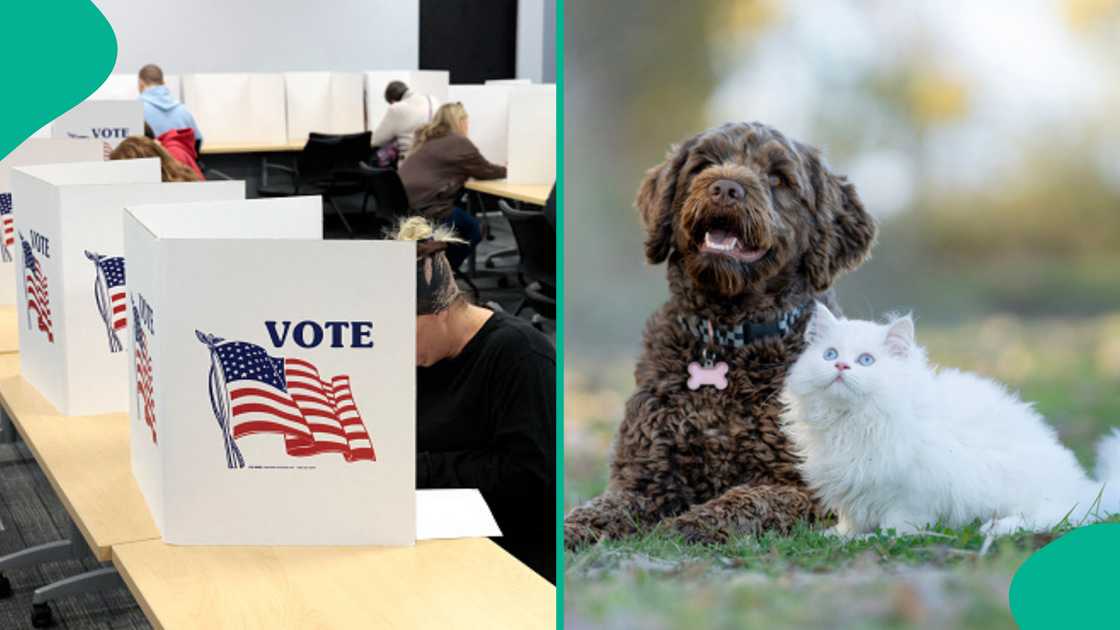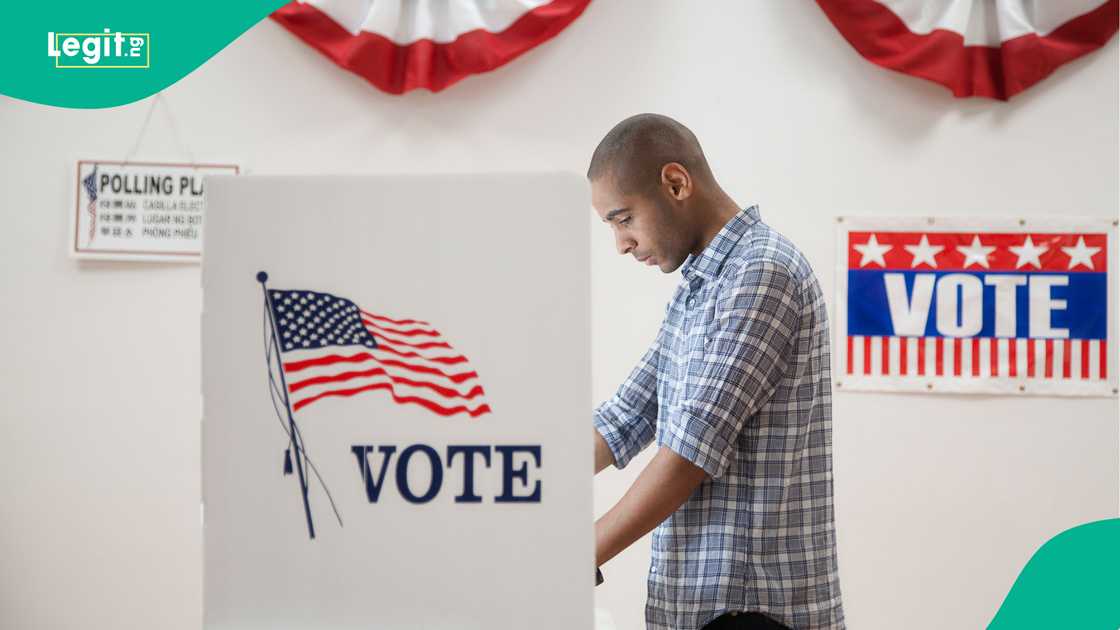US Woman Accused of Registering Her Dog to Vote, Casting Ballots Twice
- A California woman has been charged with five felonies after allegedly registering her dog to vote in two state elections
- Prosecutors said the dog’s ballot was counted in the 2021 gubernatorial recall but rejected in the 2022 primary
- The case came to light when the woman reportedly “self-reported” the incident to election officials, prompting a criminal investigation
A California woman has been charged with multiple felonies after allegedly registering her dog to vote and casting ballots in the animal’s name during two state elections, according to prosecutors.
Laura Lee Yourex, 62, of Costa Mesa, California, was formally charged with five felony counts related to voter fraud, the Orange County District Attorney’s Office announced on Friday, September 5, 2025.

Source: Getty Images
Prosecutors alleged that Yourex registered her dog, Maya Jean Yourex, to vote and submitted ballots in the dog’s name during the 2021 gubernatorial recall election and the 2022 primary election.
The DA’s office stated that Maya’s vote was successfully counted in the 2021 recall election but was rejected in the 2022 primary due to stricter federal voting requirements.

Read also
Trump distances himself from Israeli strike on Qatar, says it was planned only by Netanyahu
Yourex faces one felony count of perjury, one felony count of procuring or offering a false or forged document to be filed, two felony counts of casting a ballot when not entitled to vote, and one felony count of registering a non-existent person to vote. It remains unclear whether she has retained legal counsel. USA TODAY has contacted Orange County officials for further comment.
US election: Self-reporting and social media evidence
According to prosecutors, the case came to light when Yourex “self-reported” her actions to the Orange County Registrar of Voters on 28 October 2024.
She allegedly admitted to registering her dog and casting mail-in ballots addressed to Maya for both the 2021 and 2022 elections.
The DA’s investigation uncovered what it described as “sufficient evidence” to support the charges, including social media posts.
One post from January 2022 reportedly showed Maya wearing an “I voted” sticker alongside a ballot. Another post from October 2024 allegedly featured Maya’s dog tag and a vote-by-mail ballot, captioned, “Maya is still getting her ballot,” despite the dog having died by that time.
US election: How dog’s vote was counted
Under California Elections Code, individuals must submit an affidavit of registration to vote, including personal details and a certification of U.S. citizenship, signed under penalty of perjury.
However, the DA’s office noted that proof of residence or identification is not required to register or vote in state elections, which allowed Maya’s vote to be counted in 2021.
In contrast, federal elections require proof of residence and registration for first-time voters, leading to the rejection of Maya’s ballot in the 2022 primary.
The 2021 gubernatorial recall election, aimed at removing Governor Gavin Newsom, was defeated by 61.9% of voters. Prosecutors did not disclose Yourex’s political affiliation.
Yourex is scheduled to be arraigned at the Stephen K. Tamura West Justice Center in Westminster, California, on September 9, 2025. If convicted on all counts, she could face a maximum sentence of six years in state prison, according to the DA’s office.

Source: Getty Images
US election disinformation targets non-citizen voting
Legit.ng earlier reported that illegal immigration on the US southern border is a top talking point among Republican politicians, but some are taking it a step further by promoting disinformation about non-citizens voting in the presidential election.
With the election possibly to be decided by several thousand votes in battleground states, social media has filled up with allegations that foreigners are entering the country to swing the poll in favour of President Joe Biden.
AFP has extensively debunked those claims in both English and Spanish, explaining that non-citizens cannot vote in federal elections -- and that safeguards such as double verification prevent them from registering to do so.
Proofreading by James Ojo, copy editor at Legit.ng.
Source: Legit.ng


